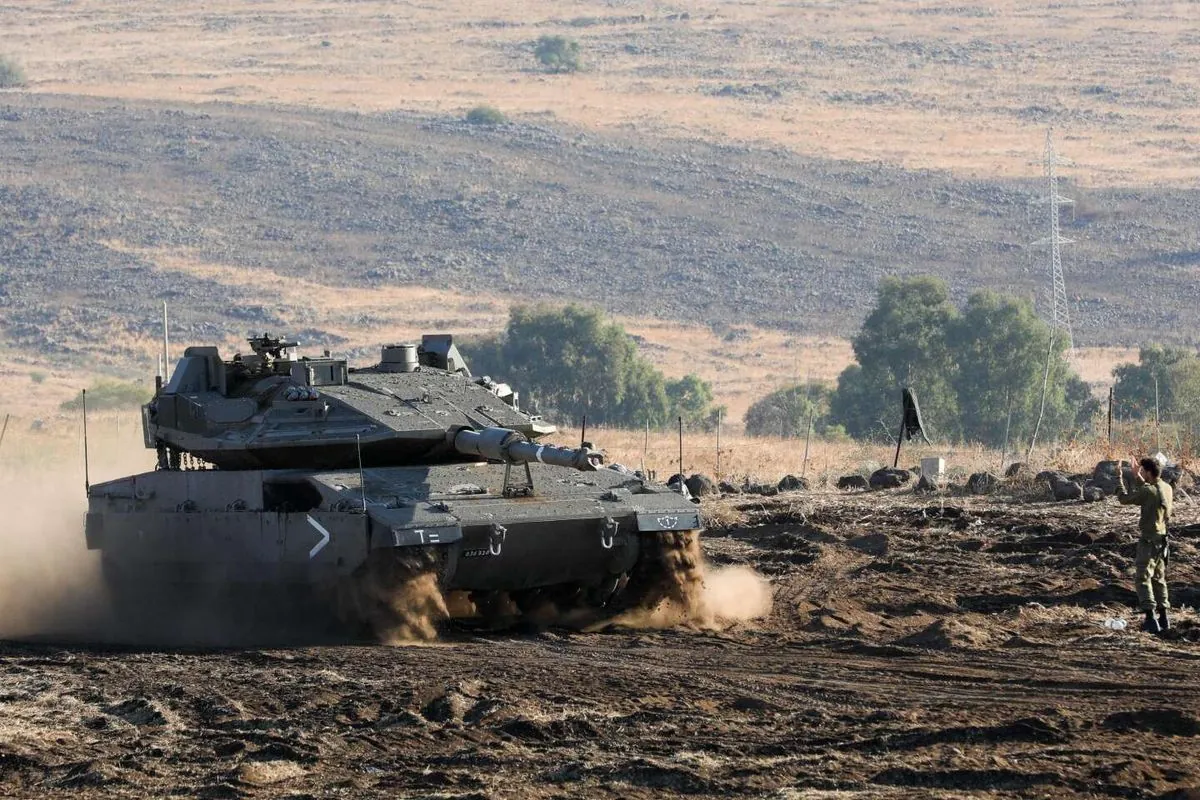Israel Adds Halting Hezbollah Attacks to War Goals, Risking Wider Conflict
Israel expands war objectives to include stopping Hezbollah attacks, potentially escalating regional tensions. U.S. urges restraint as diplomatic efforts continue amidst ongoing Gaza conflict and stalled peace talks.

Israel has officially expanded its war objectives to include halting attacks by Hezbollah in the north, potentially escalating the conflict in the region. This decision, announced on September 17, 2024, comes nearly a year after the outbreak of hostilities with Hamas in Gaza.
Hezbollah, a Lebanese Shiite Islamist political party and militant group founded in 1982, has been engaging in near-daily attacks on Israel's northern border since the Gaza conflict began. These attacks have resulted in the displacement of tens of thousands of people on both sides of the 120-kilometer-long Israel-Lebanon border.
The Israeli security cabinet's decision to update the war goals reflects the growing concern over the situation in the north. Israeli officials have repeatedly warned of potential heavier military action against Hezbollah, which is estimated to have 45,000-50,000 fighters and receives significant support from Iran.
U.S. envoy Amos Hochstein has been actively involved in diplomatic efforts to ease tensions. In a meeting with Israeli Prime Minister Benjamin Netanyahu, Hochstein cautioned against intensifying the conflict with Hezbollah, warning of the risk of sparking a broader regional conflict.

The United States has been urging restraint while simultaneously providing military aid to Israel. This delicate balancing act reflects the complex dynamics of the region, where the United Nations Interim Force in Lebanon (UNIFIL) has been present since 1978.
"Israel will do what is necessary to safeguard its security."
The ongoing conflict in Gaza, which began on October 7, 2023, with a Hamas attack on Israel, has resulted in significant casualties and displacement. The Israeli offensive has led to over 41,000 Palestinian deaths, according to Gaza's Health Ministry, and has displaced around 90% of the enclave's 2.3 million residents.
The situation is further complicated by the involvement of Iran-backed groups across the region. In April 2024, Israel and Iran exchanged direct fire for the first time, marking a significant escalation in tensions. The killing of Hamas leader Ismail Haniyeh in Tehran in July 2024, widely attributed to Israel, has further heightened the risk of retaliation.
Efforts to broker a ceasefire and secure the release of hostages have stalled, despite U.S. President Biden endorsing a framework agreement in May 2024. Both Israel and Hamas have accused each other of making unacceptable demands, leaving the negotiations at an impasse.
As the conflict continues to evolve, the international community remains concerned about the potential for a wider regional war. The situation underscores the complex web of alliances and conflicts in the Middle East, with Hezbollah's extensive social services network and significant presence in the Lebanese parliament adding layers of complexity to any potential resolution.


































